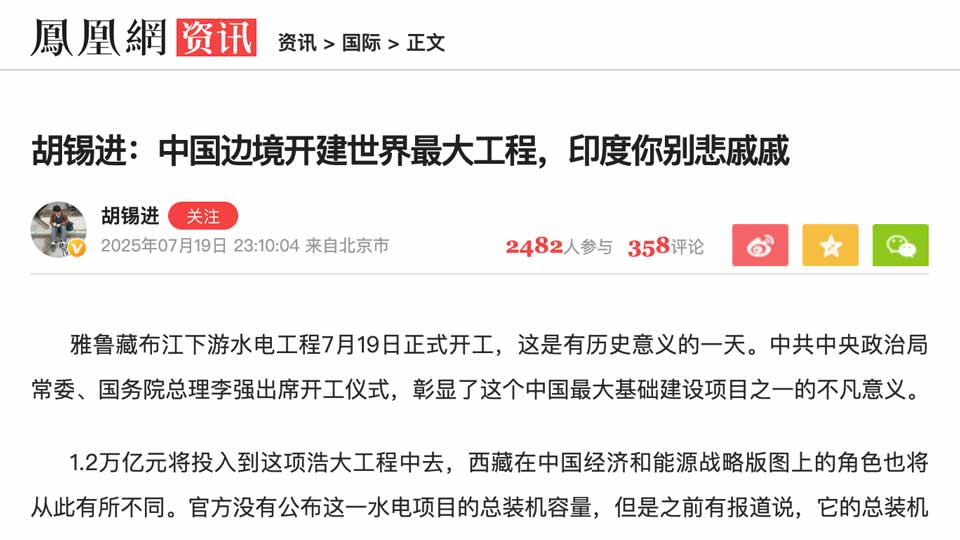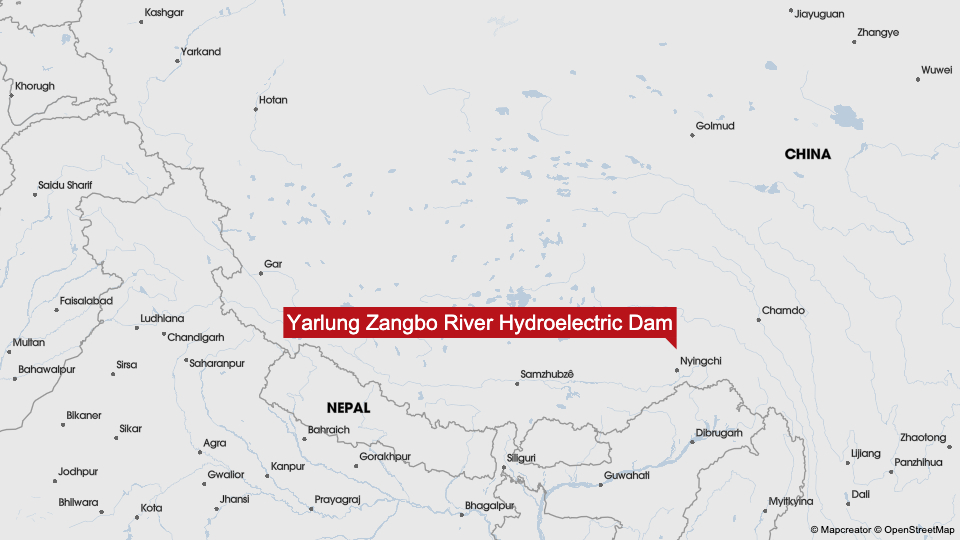
As China forges ahead with construction on what may become the world’s largest hydropower project on the Yarlung Tsangpo River, Chinese state-linked voices are mounting a vigorous defense against Indian and Western skepticism. In a recent commentary, former Global Times editor-in-chief Hu Xijin pushes back against accusations of ecological harm and geopolitical provocation.
Hu dismisses Indian and Western criticisms of the dam’s ecological and geopolitical risks as hypocritical and rooted in bias. He frames the project not only as a scientific and technological triumph but also as a long-overdue reclamation of natural energy potential that had, until now, flowed untapped through one of China’s poorest and most rugged regions.

Hu argues that India’s concerns over potential water disruptions are unfounded, pointing out that India itself has a long history of weaponizing water flows, most notably in Kashmir, where it has cut off downstream supplies to Pakistan during periods of conflict. He also highlights U.S. projects like the Colorado River dams that have damaged Mexico’s water supply, and Turkey’s controversial GAP initiative on the Euphrates, as examples of how global powers have historically disregarded the interests of downstream nations.
In contrast, Hu portrays China as a “responsible major power” that adheres to international law and prioritizes regional cooperation. He cites the Mekong River (Lancang in China) as a success story, where China’s upstream dams have allegedly reduced flooding risks for Southeast Asian countries, despite previous skepticism from those nations and international NGOs.
Ultimately, Hu insists that international opposition will not deter China from advancing its hydropower ambitions. He claims that China’s past infrastructure successes, such as the Three Gorges Dam, the Qinghai–Tibet Railway, and the South–North Water Transfer Project, were all completed despite heavy foreign criticism, and that the Yarlung Tsangpo project will be no different.
Why Is This Important?
Hu’s commentary reveals a core tactic in Beijing’s communication playbook: reframing criticism of China’s domestic projects as a reflection of Western and Indian guilt. By portraying itself as a more responsible steward of shared rivers than its rivals, China seeks to neutralize international scrutiny and legitimize its expansion into sensitive border regions.







